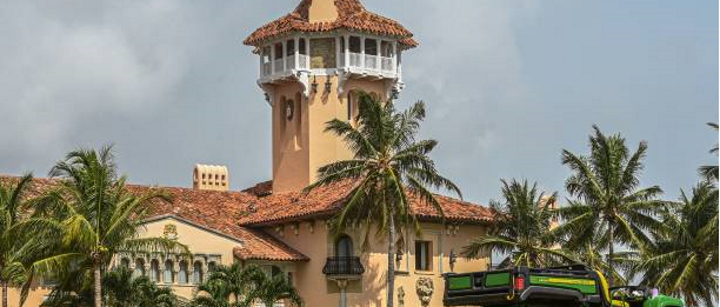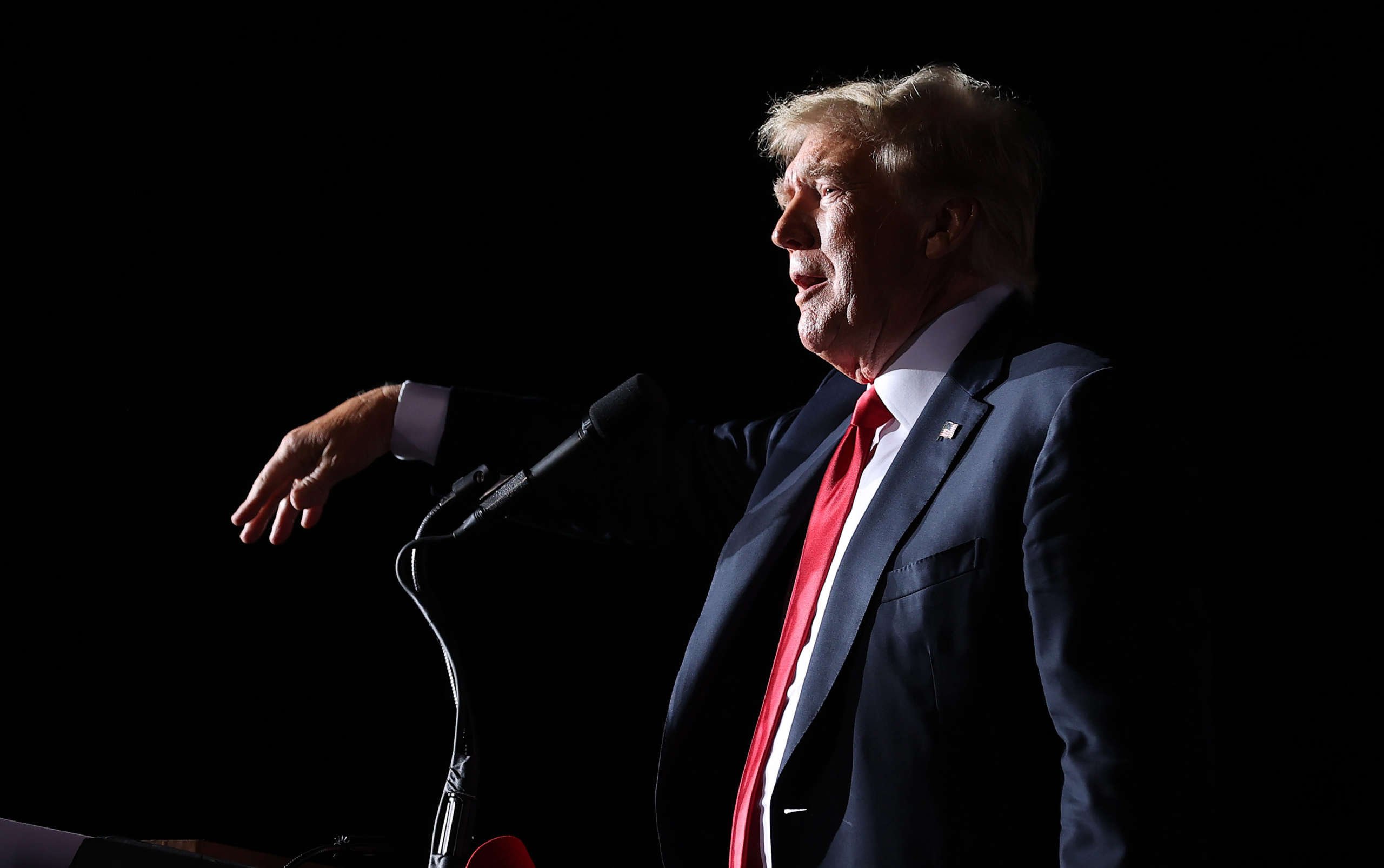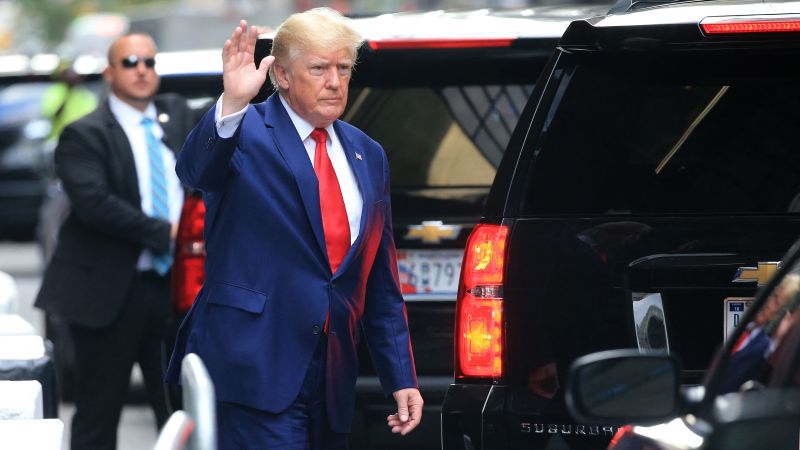Sixties Fan
Diamond Member
- Mar 6, 2017
- 58,705
- 11,130
- 2,140
- Thread starter
- #721
Every Lawmaker is laughing their heads off at his "Standing Order" argument. And at all of those who want to keep repeating that non existing order.Everything he took was allowed because….. standing order. So yes, it disproves your post
You are not a Lawmaker, are you?
Ever worked at the White House or National Archives?
----------
After the FBI searched his Mar-a-Lago home and retrieved boxes of documents — some of them labeled “top secret” — former President Donald Trump released a statement claiming that as president, he had a “standing order … that documents removed from the Oval Office and taken to the residence were deemed to be declassified the moment he removed them.”
Numerous experts on national security and the law surrounding classified documents say that isn’t plausible. And in any case, whether some of the documents are classified — as many of them were marked — may be irrelevant to the criminal investigation, since none of the three criminal laws cited as the predicate for the search warrant require documents to be classified for a violation to occur.
Nonetheless, the fact that Trump may have been holding classified documents has raised the stakes of the investigation. And it has also raised questions about the scope of Trump’s declassification powers.
“I have been engaged in declassification issues since the 1970s, and I can attest that there is no precedent for such a standing order,” Richard Immerman, an assistant deputy director of national intelligence in the George W. Bush administration, told us via email. “Further, had he issued a standing order, it surely would have been ‘leaked’ by someone and then challenged.”
“The procedure is far more formal,” said Immerman, who is now a historian at Temple University. “Documents must be declassified page by page; in fact, if TS/SCI [Top Secret/Sensitive Compartmented Information] line by line. The document then is marked declassified (often sanitized) by the authorizing agent along with the date. Consequently, former President Trump’s claim is to me implausible.”
The legal authority for classifying national security information rests in the president’s power afforded as commander-in-chief and is guided by a series of presidential executive orders, beginning with one issued by President Franklin Roosevelt in 1940. The latest of such orders, Executive Order 13526, issued in late 2009 by then-President Barack Obama, lays out in detail the procedures to declassify information, and the various officials who are to be included in such decisions. Still, the president retains the ultimate authority to declassify a document.
In an appearance on Fox News on Aug. 12, conservative writer John Solomon, who is one of Trump’s representatives for interacting with the National Archives and Records Administration, read a statement from Trump’s office in which the former president argued that he had a “standing order” to declassify all documents taken to Mar-a-Lago, and that he didn’t need anyone or anything else to do that.
“As we can all relate to, everyone ends up having to bring home their work from time to time,” Solomon read. “American presidents are no different. President Trump, in order to prepare the work for the next day, often took documents, including classified documents, to the residence. He had a standing order … that documents removed from the Oval Office and taken to the residence were deemed to be declassified the moment he removed them.”
“The power to classify and declassify documents rests solely with the president of the United States,” the statement continued. “The idea that some paper-pushing bureaucrat with classification authority delegated by the president, needs to approve the declassification is absurd.”
Trump, who has referred to the search as a “break-in” and a “witch hunt,” defended himself on his social media platform, Truth Social. He said the documents were “all declassified” and held in “secured storage” at Mar-a-Lago.
Bolton: ‘Almost Certainly a Lie’
Trump’s former national security adviser, John R. Bolton, told the New York Times he never heard of Trump’s alleged standing order and that it is “almost certainly a lie.”“I was never briefed on any such order, procedure, policy when I came in,” Bolton told the Times, nor was he aware of such a policy when he worked at the White House or after.
“If he [Trump] were to say something like that, you would have to memorialize that, so that people would know it existed,” Bolton said.
Glenn Gerstell, former general counsel for the National Security Agency from 2015 to 2020 — straddling the Obama and Trump administrations — told us in a phone interview that if there was a standing order, he, too, “was not aware of that.”
“If there was a standing order it doesn’t appear to have been memorialized,” Gerstell said.
The normal procedure to declassify information is “quite detailed,” Gerstell said. First, a determination has to be made that the information is something that is significant and in the public interest, and second, that it meets the threshold for declassification because it does not pose a security threat if revealed. The agency that initiated the classification would be notified and can weigh in on whether it thinks the information should remain classified. The president can override the agency’s recommendation, but it would be taken into consideration.

Trump's Dubious 'Standing Order' to Declassify Documents - FactCheck.org
After the FBI seized boxes of U.S. documents from Mar-a-Lago — some of them labeled “top secret” — former President Donald Trump claimed he had a “standing order" that documents "taken to the residence were deemed to be declassified." Numerous experts say that isn't plausible.

